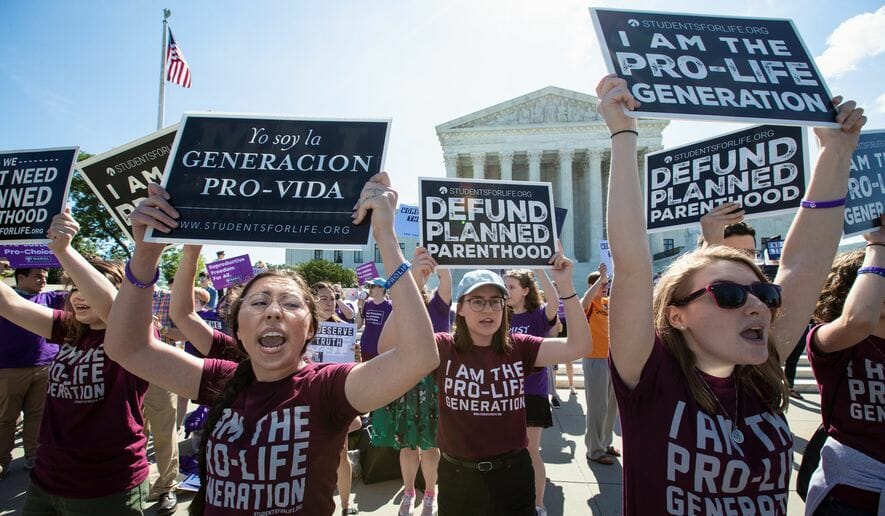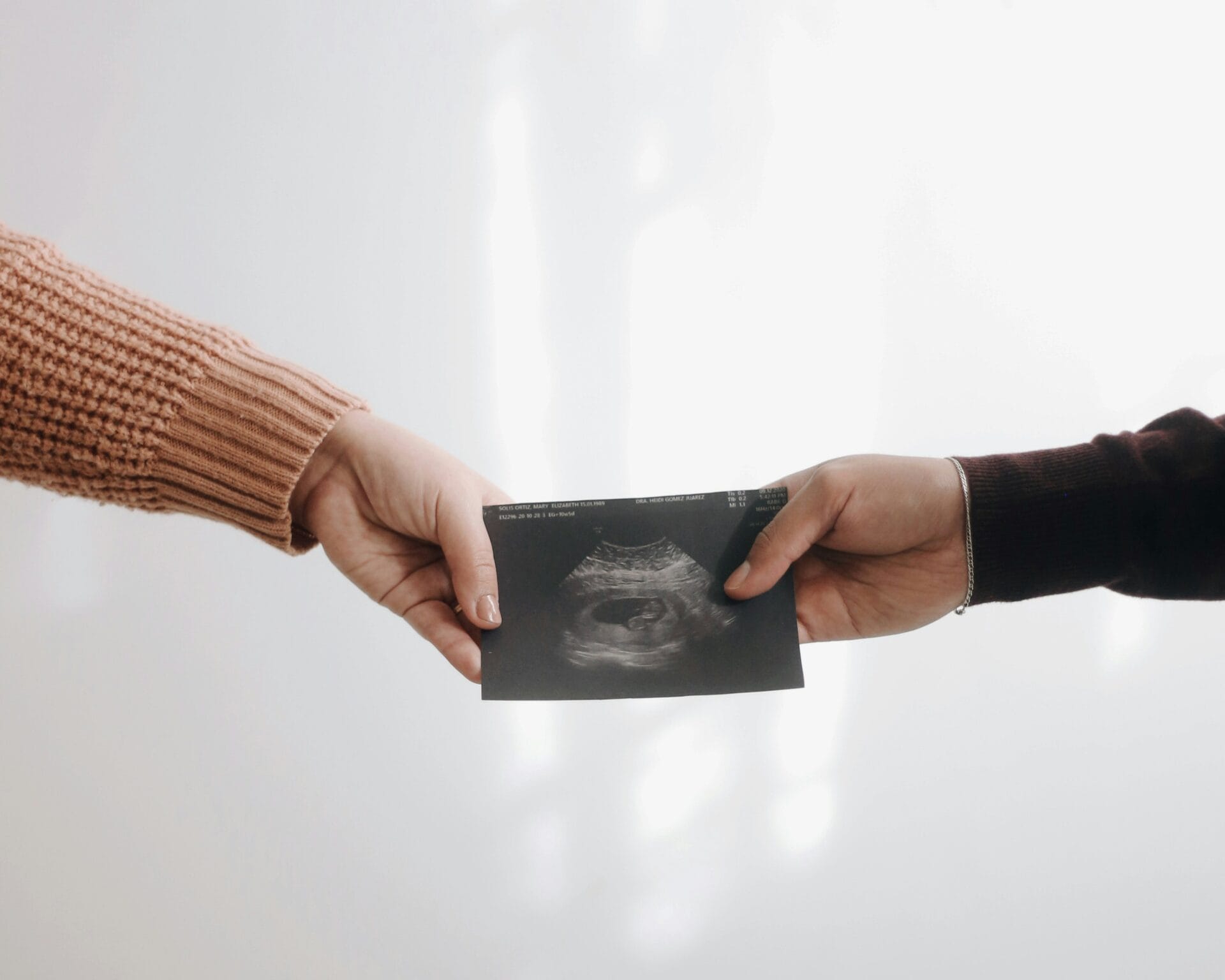
The Supreme Court just handed down a ruling in the June Medical Services v. Gee case that was a degrading loss for women in Louisiana. The case was regarding safety standards and whether or not Louisiana had the right to require their abortion facilities to adhere to some, such as admitting privileges to a nearby hospital.
In other words, the case didn’t really even pertain to abortion. It didn’t limit any procedures, impose any restrictions, or require mothers to see an ultrasound first. It was about whether abortion facilities should be held to the same health and safety standard as actual medical facilities. Apparently, they don’t need to.
The “Unsafe Abortion Protection Act” was reversed 5-4. The breakdown is as follows:
Concurring (Not in Favor of Safety Standards):
- Justice Breyer
- Justice Ginsberg
- Justice Sotomayor
- Justice Kagan
- Justice Roberts
Dissenting (In Favor of Safety Standards):
- Justice Thomas
- Justice Alito
- Justice Gorsuch
- Justice Kavanaugh
For those unfamiliar with court proceedings – upon reaching a decision, Justices produce an opinion explaining the ruling. Dissenters explain why they disagree.
The entire 100-page opinion can be found here. Anyone interested in pro-life politics should read it. But… we also created a highlight reel below. Read on to see the best (and the worst) from the majority and the dissenters discussing why Louisiana cannot protect women in an abortion vendor’s office.

From the Majority…
To paraphrase Justice Breyer: It was going to be too hard to get admitting privileges for the Louisiana abortionists, and for some reason, we have to support those abortionists as opposed to hiring better one … and if we had to get rid of the sub-par abortionists, the state would have fewer abortionists… which is an undue burden for abortion in Louisiana. It would be better to have more unsafe ones.
Putting health and safety standards in place would slow abortions and keep some from doing abortions. “And that obstacle, “when viewed in light of the virtual absence of any health benefit,” imposed an “undue burden” on abortion access in violation of the Federal Constitution.”
Breyer asserts that requiring abortion facilities to have an emergency plan for when things go wrong does not constitute a “health benefit.” And Justices Ginsberg, Sotomayor, and Kagan agreed. The thousands of women who have been sent to emergency rooms following botched abortions might beg to differ.
The four go to great lengths saying that the abortionists tried very hard to get admitting privileges, but hospitals didn’t let them have it because some don’t like people who do abortions.

Roberts Concurring: I had to flip flop. The law is making me do it.
“I joined the dissent in Whole Woman’s Health and continue to believe that the case was wrongly decided. The question today however is not whether Whole Woman’s Health was right or wrong, but whether to adhere to it in deciding the present case.”
“The legal doctrine of stare decisis requires us, absent special circumstances, to treat like cases alike. The Louisiana law imposes a burden on access to abortion just as severe as that imposed by the Texas law, for the same reasons. Therefore Louisiana’s law cannot stand under our precedents.”
Roberts writes that the “Undue” burden standard from Casey was the “appropriate framework” to decide this case … but how is taking precautions for an emergency a burden to women? It asks something of the abortionists … women are not out there rallying for more risk.

Thomas Dissenting: This is NOT Constitutional.
Some crucial lines from Thomas’s dissent:
“Today a majority of the Court perpetuates its ill-founded abortion jurisprudence by enjoining a perfectly legitimate state law and doing so without jurisdiction.
On the issue of standing (who can sue/can abortionists sue for women), “a majority of the Court all but ignores the question.”
“The plurality and THE CHIEF JUSTICE ultimately cast aside this jurisdictional barrier to conclude that Louisiana’s law is unconstitutional under our precedents. But those decisions created the right to abortion out of whole cloth, without a shred of support from the Constitution’s text. Our abortion precedents are grievously wrong and should be overruled. Because we have neither jurisdiction nor constitutional authority to declare Louisiana’s duly enacted law unconstitutional, I respectfully dissent.”
He talks a lot about standing: “For most of its history, this Court maintained that private parties could not bring suit to vindicate the constitutional rights of individuals who are not before the Court.”
But today’s decision is wrong for a far simpler reason: The Constitution does not constrain the States’ ability to regulate or even prohibit abortion.

Alito Dissenting: Louisiana Abortionists Didn’t Even Try to Protect Women with Admitting Privileges and Have a Terrible Track Record of Health Violations.
Today’s decision claims new victims. The divided majority cannot agree on what the abortion right requires, but it nevertheless strikes down a Louisiana law, Act 620, that the legislature enacted for the asserted purpose of protecting women’s health. To achieve this end, the majority misuses the doctrine of stare decisis, invokes an inapplicable standard of appellate review, and distorts the record.
And the idea that a regulated party can invoke the right of a third party for the purpose of attacking legislation enacted to protect the third party is stunning. Given the apparent conflict of interest, that concept would be rejected out of hand in a case not involving abortion.
But unless an abortion law has an adverse effect on women, there is no reason why the law should face greater constitutional scrutiny than any other measure that burdens a regulated entity in the name of health or safety.
Admitting privileges are “the primary way of determining competency.”
This case features a blatant conflict of interest between an abortion provider and its patients. Like any other regulated entity, an abortion provider has a financial interest in avoiding burdensome regulations such as Act 620’s admitting privileges requirement. Applying for privileges takes time and energy, and maintaining privileges may impose additional burdens. Women seeking abortions, on the other hand, have an interest in the preservation of regulations that protect their health. The conflict inherent in such a situation is glaring.
Like any other party unhappy with burdensome regulation, the provider should be limited to its own rights. For third party standing, you need relationship … and abortionists form no such relationship. The decision in this case, like that in Whole Woman’s Health, twists the law, and I therefore respectfully dissent.

Gorsuch Dissenting: The Law is Not Followed Here, and It’s a Mess.
Gorsuch goes through the horrific record of the Louisiana vendors from the trial court testimony.
“A different physician explained that she routinely treats abortion complications in the emergency room when the physician who performed the abortion lacks admitting privileges. In her experience, that situation “puts a woman’s health at an unnecessary, unacceptable risk that results from a delay of care . . . and a lack of continuity of care.’”
After overlooking so many facts and the deference owed to the legislative process, today’s decision misapplies many of the rules that normally constrain the judicial process. Start with the question who can sue. To establish standing in federal court, a plaintiff typically must assert an injury to her own legally protected interests—not the rights of someone else.
No one even attempts to suggest this usual prerequisite is satisfied here. The plaintiffs before us are abortion providers. They do not claim a constitutional right to perform that procedure, and no one on the Court contends they hold such a right. Instead, the abortion providers before us seek only to assert the constitutional rights of an undefined, unnamed, indeed unknown, group of women who they hope will be their patients in the future.
Separately and additionally, the abortion providers cannot claim a “close relationship” with the women whose rights they assert. Normally, the fact that the plaintiffs do not even know who those women are would be enough to preclude third-party standing.
He notes that according to testimony the abortionists did not try very hard to get admitting privileges. “Maybe these physicians didn’t feel it was worth putting in much effort to obtain admitting privileges given their chances of prevailing in this lawsuit. But it “taxes the credulity of the credulous” to think they would have treated the process so lightly if their livelihood depended on securing admitting privileges.”
Not only does today’s decision treat factual questions as if they were legal ones, it treats legal questions as if they were facts.
He says that today’s ruling is basically a legal mess of thrown together principles. “Really, it’s little more than the judicial version of a hunter’s stew: Throw in anything that looks interesting, stir, and season to taste.”
To arrive at today’s result, rules must be brushed aside and shortcuts taken.

Kavanaugh Dissenting: I’m with Alito.
A different five Members of the Court conclude that Louisiana’s admitting- privileges law is unconstitutional because it “would restrict women’s access to abortion to the same degree as” the Texas law in Whole Woman’s Health.
As JUSTICE ALITO thoroughly and carefully explains, the factual record at this stage of plaintiffs’ facial, pre-enforcement challenge does not adequately demonstrate that the three relevant doctors (Does 2, 5, and 6) cannot obtain admitting privileges or, therefore, that any of the three Louisiana abortion clinics would close as a result of the admitting-privileges law.
Share this post
Recent Posts

Abortion Brags from Lily Allen & Hat from Cynthia Nixon Enrage Even Pro-Choice Americans. Can the Pro-Life Generation Take Some Credit?
11 Jul 2025
Young Mom Prayed for God’s Hand on Her Child – At Her Ultrasound Appointment, THIS Happened
11 Jul 2025
Letter to the FDA Regarding Chemical Abortion Drugs June 2020
10 Jul 2025
